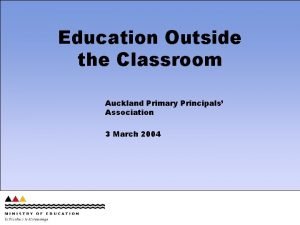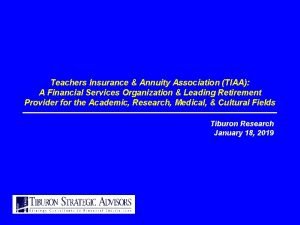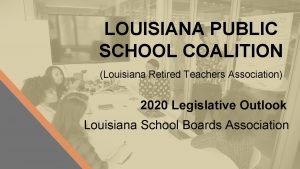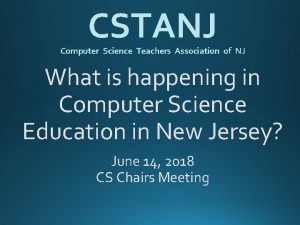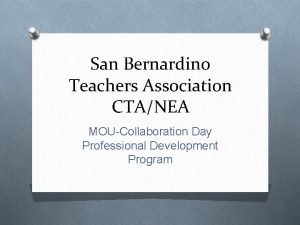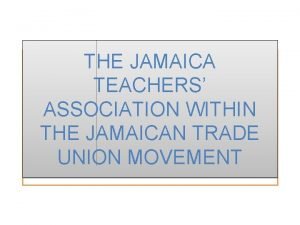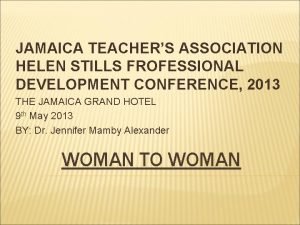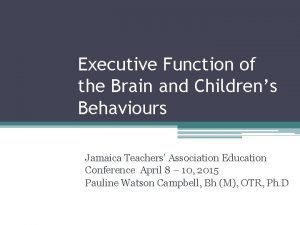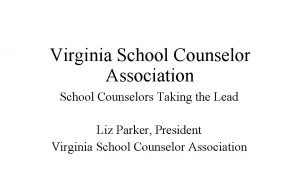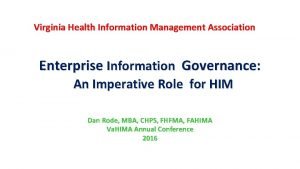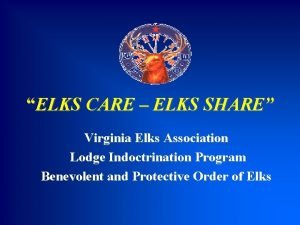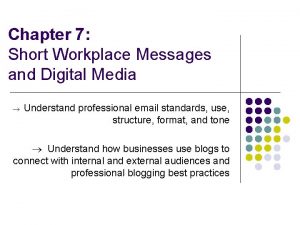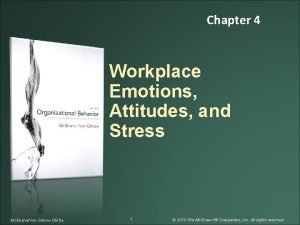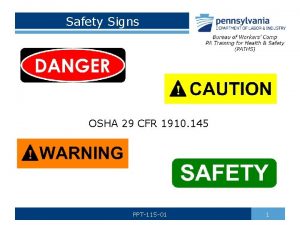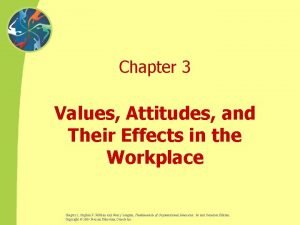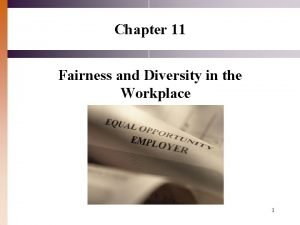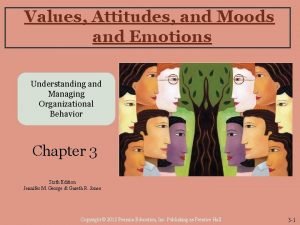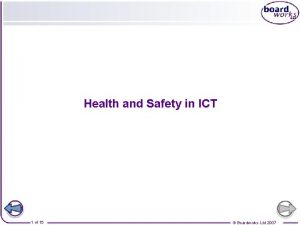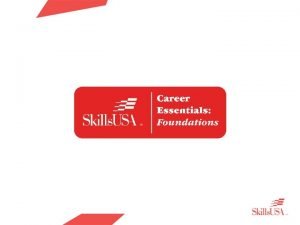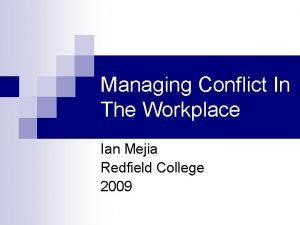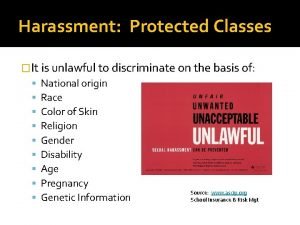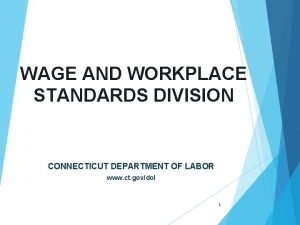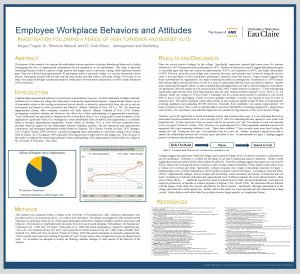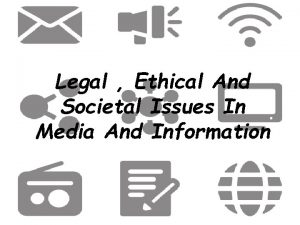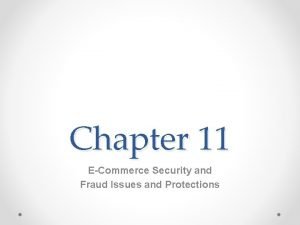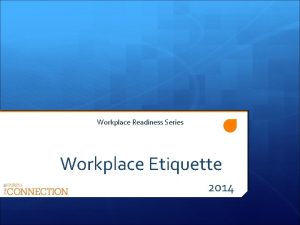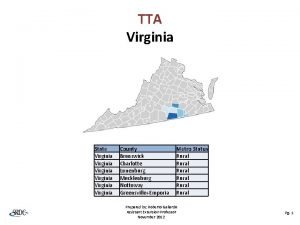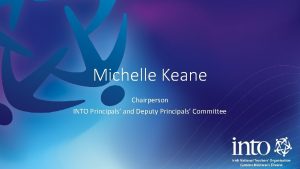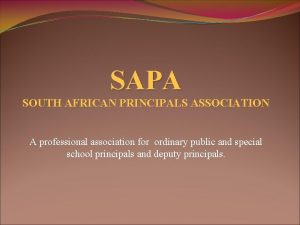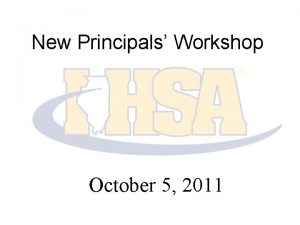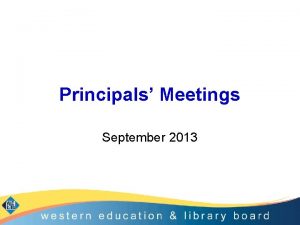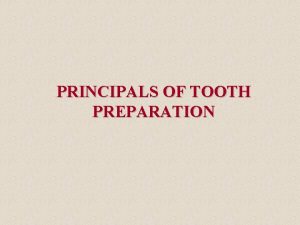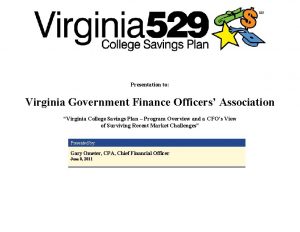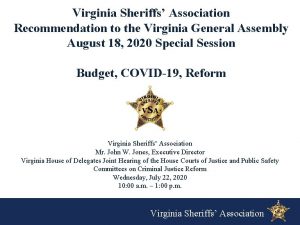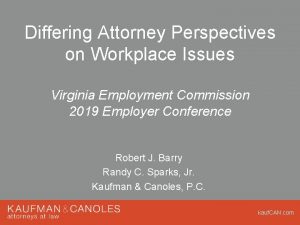WORKPLACE ISSUES WITH TEACHERS AND PRINCIPALS VIRGINIA ASSOCIATION























































- Slides: 55

WORKPLACE ISSUES WITH TEACHERS AND PRINCIPALS VIRGINIA ASSOCIATION OF SECONDARY SCHOOL PRINCIPALS ANNUAL CONFERENCE Bradford A. King BKING@SANDERSON. COM June 24, 2018 © 2018 -Sands Anderson PC

ROADMAP 1. 2018 Legislative Changes* 2. Title IX Update 3. Takeaways *Summaries provided by Division of Legislative Services © 2018 -Sands Anderson PC

2018 LEGISLATIVE UPDATE LEGISLATION AFFECTING INSTRUCTION HB 45 Family life education - personal privacy and personal boundaries. Requires any family life education curriculum offered in any elementary school, middle school, or high school to incorporate age-appropriate elements of effective and evidence-based programs on the importance of the personal privacy and personal boundaries of other individuals and tools for a student to use to ensure that he respects the personal privacy and personal boundaries of other individuals. Family life education. Requires any high school family life education curriculum offered by a local school division to incorporate ageappropriate elements of effective and evidence-based programs on the prevention of sexual harassment using electronic means. The bill permits any family life education curriculum offered by a local school division to incorporate age-appropriate elements of effective and evidence-based programs on the prevention, recognition, and awareness of child abduction, child abuse, child sexual exploitation, and child sexual abuse. © 2018 -Sands Anderson PC

2018 LEGISLATIVE UPDATE – LEGISLATION AFFECTING STUDENTS HB 1485 Truancy; procedures. Makes several changes to the procedures relating to interventions when a pupil fails to report to school for a total of five scheduled school days for the school year, no indication has been received by school personnel that the pupil's parent is aware of and supports the pupil's absence, and a reasonable effort to notify the parent has failed, including (i) removing the appointed attendance officer as a party to the plan to resolve such nonattendance, (ii) permitting but not requiring the attendance officer to participate in the conference necessitated by additional absences subsequent to the development of the plan, and (iii) permitting but not requiring the attendance officer to file a complaint with the juvenile and domestic relations district court alleging the pupil is a child in need of supervision or to institute criminal proceedings against the parent pursuant to relevant law. Under current law, the attendance officer is required to participate in such conference and is also required to file such complaint and institute such proceedings in cases in which the pupil is absent for an additional school day without indication that the pupil's parent is aware of and supports the pupil's absence. © 2018 -Sands Anderson PC

2018 LEGISLATIVE UPDATE – LEGISLATION AFFECTING STUDENTS HB 1600 Student discipline; long-term suspension. Reduces the maximum length of a long-term suspension from 364 calendar days to 45 school days. The bill permits a long-term suspension to extend beyond a 45 school-day period, not to exceed 364 calendar days, if (i) the offense involves weapons, drugs, or serious bodily injury or (ii) the school board or division superintendent or his designee finds that aggravating circumstances exist, as defined by the Department of Education. The bill requires the Department of Education's definition of aggravating circumstances to include consideration of a student's disciplinary history. © 2018 -Sands Anderson PC

2018 LEGISLATIVE UPDATE – LEGISLATION AFFECTING STUDENTS SB 170 Student discipline. Prohibits, except for drug offenses, firearm offenses, and certain criminal acts, students in preschool through grade three from being suspended for more than three school days or expelled from attendance at school unless (i) the offense involves physical harm or credible threat of physical harm to others or (ii) the local school board or the division superintendent or his designee finds that aggravating circumstances exist, as defined by the Department of Education. © 2018 -Sands Anderson PC

2018 LEGISLATIVE UPDATE – LEGISLATION AFFECTING PERSONNEL HB 1044 School board policies; healthy school workplaces. Requires each school board to adopt policies to (i) prohibit abusive work environments in the school division, (ii) provide for the appropriate discipline of any school board employee who contributes to an abusive work environment, and (iii) prohibit retaliation or reprisal against a school board employee who alleges an abusive work environment or assists in the investigation of an allegation of an abusive work environment. HB 212 Conflict of Interests Act - Allows any school district to invoke the current exemption from the prohibition against hiring, under certain circumstances, a school district employee who is related to a member of the school board. © 2018 -Sands Anderson PC

2018 LEGISLATIVE UPDATE – LEGISLATION AFFECTING PERSONNEL HB 1000 School boards; employment of certain individuals. Permits any school board to employ an individual who, at the time of the individual's hiring, has been convicted of a felony, provided that such individual (i) was employed in good standing by a school board on or before December 17, 2015; (ii) has been granted a simple pardon for such offense by the Governor or other appropriate authority; and (iii) has had his civil rights restored by the Governor or other appropriate authority. The bill permits a school board to employ, until July 1, 2020, a person who does not satisfy the conditions set forth in clauses (ii) and (iii), provided that such person has been continuously employed by the school board from December 17, 2015, through July 1, 2018. © 2018 -Sands Anderson PC

2018 LEGISLATIVE UPDATE MISCELLANEOUS HB 97 VPPA - Increases the maximum permissible aggregate or sum of all phases of single or term contracts for professional services that may be procured without requiring competitive negotiation from $60, 000 to $80, 000. The bill also increases the maximum sum of architectural or professional engineering services contracts performed in a one-year contract term from $500, 000 to $750, 000. HB 50 School Meal Policy - Requires each local school board to adopt policies that (i) prohibit school board employees from requiring a student who cannot pay for a meal at school or who owes a school meal debt to do chores or other work to pay for such meals or wear a wristband or hand stamp and (ii) require school board employees to direct any communication relating to a school meal debt to the student's parent, which may be made by a letter addressed to the parent to be sent home with the student. © 2018 -Sands Anderson PC

2018 LEGISLATIVE UPDATE MISCELLANEOUS HB 1 Scholastic records; disclosure of directory information. Clarifies that student directory information may be publicly disclosed by a school if the school has given notice to the parent or eligible student of (i) the types of information that the school has designated as directory information; (ii) the right of the parent or eligible student to refuse the designation of any or all of the types of information about the student as directory information; and (iii) the period of time within which a parent or eligible student must notify the school in writing that he does not want any or all of the types of information about the student designated as directory information. The bill also provides, however, that no school shall disclose the address, phone number, or email address of a student pursuant to 34 C. F. R. § 99. 31(a)(11) or the Virginia Freedom of Information Act (§ 2. 23700 et seq. ) unless the parent or eligible student has affirmatively consented in writing to such disclosure. © 2018 -Sands Anderson PC

TITLE IX © 2018 -Sands Anderson PC

TITLE IX HEADLINES “Of Course Sexual Harassment Is Rampant. It Starts in Our Schools. ” Fortune Magazine – October 2017 Research by the American Association of University Women (AAUW) found that nearly half of students surveyed in grades 7– 12 experienced some form of sexual harassment within the past school year—nearly 87% of those students reported that the harassment had a negative impact on them “If left unchecked, harassment is a learned behavior that continues into adulthood” © 2018 -Sands Anderson PC

TITLE IX HEADLINES “These middle school students pretended to rape black classmates on Snapchat” – Washington Post, October 22, 2017 § § Middle school football season cancelled Sensitivity training imposed Town hall held OCR complaint filed The Younger Victims of Sexual Violence in School – “Conversations about Title IX tend to focus on college, but cases among K-12 students are abundant and often poorly handled” – The Atlantic, August 10, 2017 “Students Drive New Policies As K-12 Sexual Assault Investigations Rise” – NPR, August 8, 2017 © 2018 -Sands Anderson PC

FEDERAL LAW © 2018 -Sands Anderson PC

TITLE IX Title IX of the Education Amendments of 1972, 20 U. S. C. § 1681 et seq. (Title IX): § “No person in the United States shall, on the basis of sex, be excluded from participation in, be denied the benefits of, or be subjected to discrimination under any education program or activity receiving Federal financial assistance. ” § U. S. Department of Education’s Office for Civil Rights (“OCR”) interprets this to include gender-based harassment. § Gender-based harassment includes verbal, non-verbal or physical aggression, intimidation, or hostility based on sex or sex stereotyping, including failing to conform to stereotypical notions of masculinity or femininity. © 2018 -Sands Anderson PC

TITLE IX – SEXUAL ASSAULT/HARASSMENT Since 2014, OCR K-12 investigations up 500%; as of April 27, 2018– 5 open investigations in VA school divisions School divisions are not liable for one student harassing another, but may be liable for failing to respond adequately, whether or not the harassed student makes a complaint or asks the school to take action. School division may violate Title IX if: § Harassing conduct is sufficiently serious to deny or limit the student’s ability to participate in or benefit from the educational program; § The division knew or reasonably should have known about the harassment; and § The division failed to take appropriate responsive action. Because liability can be imposed when a single school administrator with authority to take corrective action responded to harassment with deliberate indifference, it is imperative that school divisions ensure that all staff and administrators understand their responsibilities to report and investigate suspected sexual abuse or harassment. © 2018 -Sands Anderson PC

TITLE IX – SEXUAL ASSAULT/HARASSMENT When a school division knows or reasonably should know of possible harassment, it must take immediate and appropriate steps to investigate or otherwise determine what occurred. If an investigation reveals that the harassment created a hostile environment, the school division must then take prompt and effective steps reasonably calculated to : § § End the harassment; Eliminate the hostile environment; Prevent its reoccurrence; and As appropriate, remedy its effects. © 2018 -Sands Anderson PC

SEXUAL ASSAULT/VIOLENCE Physical sexual acts perpetrated against a person’s will or where a person is unable to give consent because of a person’s age, intellectual disability, or due to the use of drugs and alcohol, AND Where the alleged conduct is sufficiently serious to limit or deny a student’s ability to participate in, or benefit from, educational programs or activities. § One incident of sexual assault can trigger Title IX responsibilities, depending on the severity and impact on the student’s ability to participate in educational programs or activities. © 2018 -Sands Anderson PC

SEXUAL HARASSMENT QUID PRO QUO – employee conditions an educational benefit or decision on the student’s submission to sexual conduct; or Conduct creates a HOSTILE ENVIRONMENT” § § § § Degree to which the conduct affects students’ education; Type, frequency and duration of the conduct; Identity and relationship between harasser(s) and victim(s); Number of individuals involved (group harassment); Age and sex of harasser and victim; Size of school, location of incidents, and context; Welcomeness (depends on age, relationship between offender and victim). * In either case, conduct must deny or limit student’s ability to participate in or benefit from educational programs or activities. © 2018 -Sands Anderson PC

GROOMING BEHAVIORS Often occur in context of providing additional assistance to students; i. e. , music lessons, advice on a school project, tutoring, athletic assistance or training, outdoor activities. Inappropriate and/or excessive communications such as through texting, “IM”ing, Facebook, Snapchat, and other social media. Overly involved in students’ personal and social lives. Acting more like a friend than a teacher (being cool, talking about juvenile issues, dressing inappropriately, sharing music and videogames, etc. ) Visiting students at home with or without parent present. Overly familiar and/or “touchy” with student. Attending social or athletic activities with students outside school-sponsored events. Favoritism or giving special privileges. Gifts. © 2018 -Sands Anderson PC

GENDER IDENTITY From OCR’s website: § Title IX protects all students, including transgender and gendernonconforming students, from sex discrimination. Title IX encompasses discrimination based on a student’s nonconformity with sex stereotypes and gender identity, including a student’s transgender status § Once a school is notified that a student will begin asserting a gender identity that differs from previous representations or records, the school must begin treating the student consistent with the student’s gender identity § All schools must ensure that all students, including LGBT students, are able to learn and thrive in a safe environment © 2018 -Sands Anderson PC

FEDERAL GUIDANCE © 2018 -Sands Anderson PC

OCR AUTHORITY U. S. Department of Education’s Office for Civil Rights (OCR) enforces: § Title VI of the Civil Rights Act of 1964 – prohibits discrimination on the basis of race, color and national origin § Title IX of the Education Amendments of 1972 – prohibits discrimination on the basis of gender in educational programs receiving federal funds § Section 504 of the Rehabilitation Act of 1973 – prohibits discrimination and harassment based on disability in programs that receive federal financial assistance © 2018 -Sands Anderson PC

OCR AUTHORITY Title II of the Americans with Disabilities Act of 1990 – prohibits discrimination and harassment based on disability in public entities Age Discrimination Act of 1975 – prohibits discrimination based on age Boy Scouts of America Equal Access Act of 2001 – prohibits denial of equal access to school facilities or programs or discrimination against any group officially affiliated with Boy Scouts © 2018 -Sands Anderson PC

OCR COMPLAINTS Complaints may be filed by anyone who believes that an educational institution that receives federal financial assistance has discriminated against someone on the basis of race, color, origin, sex, disability, or age – and need NOT be the victim © 2018 -Sands Anderson PC

PROCESS FOR OCR COMPLAINT AND INVESTIGATION Once filed, OCR decides whether or not to investigate § Is it already being investigated by another agency or by the school’s formal grievance procedure (or state)? § Was the complaint made within 180 days from the last date of the alleged discrimination? Early complaint resolution is offered, but both parties must consent – in some instances this will temporarily stay the data request, response requirements © 2018 -Sands Anderson PC

INVESTIGATION During investigation, OCR will review information submitted by both parties, may conduct interviews OCR will request data, the institution’s narrative response, and any other available evidence § Record of trainings § Policies § Correspondence/communication OCR’s goal is to obtain independent written documentation that corroborates oral statements made by the complainant or witnesses 2018 Case Processing Manual: https: //www 2. ed. gov/about/offices/list/ocr/docs/ocrcpm. pdf © 2018 -Sands Anderson PC

FINDING OF DISCRIMINATION OCR’s finding that a school division violated one of the various laws it enforces must be supported by a preponderance of the evidence; that is, evidence that shows it is more likely than not that the school division took/failed to take the action alleged When there is a significant conflict in the evidence (no corroborating witness statements), OCR generally must conclude that there is insufficient evidence to establish a violation of the law © 2018 -Sands Anderson PC

FINDING OF DISCRIMINATION – WHAT HAPPENS NEXT? Resolution Agreement § OCR will closely monitor § Will not close the complaint until the terms of the resolution agreement are fulfilled and the school division is in compliance with the statute(s) and regulation(s) at issue If no agreement, OCR will issue a Letter of Findings setting forth factual and legal basis for violation/non-violation May initiate administrative enforcement proceedings to terminate or suspend federal financial assistance to the division or refer the case to the Department of Justice (DOJ) OCR may also move to defer any new or additional federal money to the school division (Notice of Opportunity for Hearing) © 2018 -Sands Anderson PC

COMPLIANCE REVIEWS Regulations require OCR to initiate “periodic compliance reviews” to assess the practices of recipients to determine whether they comply with the regulations promulgated pursuant to the laws OCR enforces Broad discretion afforded by regulations to determine issues for investigation and the number and frequency Many fewer compliance reviews vs. complaints received © 2018 -Sands Anderson PC

DEAR COLLEAGUE LETTERS During previous administration, OCR increasingly issued what it calls “Dear Colleague Letters” and other guidance documents addressing a variety of civil rights issues on public K-12 school campuses: Examples § § § § Transgender student issues* Disabled students’ access to extracurricular activities Title IX and Pregnant/Parenting Students Discrimination in the administration of student discipline Title IX and Sexual Harassment/Violence* Avoiding discrimination in enrollment practices Bullying of students with disabilities English Language Learner Students and Limited English Proficient Parents © 2018 -Sands Anderson PC

RECENT CHANGES TO FEDERAL GUIDANCE February 22, 2017 § Withdrawal of statements of policy and guidance reflected in May 2016 DCL on OCR’s enforcement of Title IX with respect to transgender students based on gender identity as well as related January 2015 letter § Notes that former guidance requiring access to sex-segregated facilities based on gender identity did not contain extensive legal analysis or explain how the position is consistent with the express language of Title IX or undergo any formal public process § August of 2016, a Texas court preliminarily enjoined enforcement of the interpretation, and that nationwide injunction has not been overturned § March 6, 2017 U. S. Supreme Court vacated and remanded Gloucester County School Board v. G. G. case for further consideration; 4 th Circuit remanded to US District court, School Division filed motion to dismiss for mootness § May 22, 2018 US DC for EDVA denied School Division motion to dismiss © 2018 -Sands Anderson PC

RECENT CHANGES TO FEDERAL GUIDANCE June 6, 2017 § Internal memo from OCR to regional directors highlighting recent developments in the enforcement of Title IX, specifically with regard to transgender students § OCR should rely on the Title IX and implementing regulations as interpreted in decisions of federal courts and OCR documents that have not been rescinded § Provided specific examples of when OCR can assert subject matter jurisdiction § Failure to resolve a transgender student’s complaint of sex discrimination § Failure to assess whether sexual harassment or gender-based harassment (refusing to use preferred name or pronouns) of a transgender student created a hostile environment § Different treatment based on sex stereotyping § Provided appropriate language to use in the case of a complaint dismissal © 2018 -Sands Anderson PC

RECENT CHANGES TO FEDERAL GUIDANCE June 8, 2017 internal memo regarding changes to all investigations § Case-by-case § Highlighting effort to clear backlog § Ending practice of requesting three years of data, except where allegations themselves raise “systemic” issues § School divisions can expect less comprehensive data requests from OCR, narrower investigations, narrower remedies, and more emphasis on voluntary resolutions § From January – August 2017 – OCR closed almost three thousand more complaints than in all of 2016 § § § 75% of closures were dismissals 7 % were administrative closures 2 % were ECR 9 % finding of insufficient evidence 5 % resolution agreements © 2018 -Sands Anderson PC

RECENT CHANGES TO FEDERAL GUIDANCE September 22, 2017 - OCR formally revoked Obama administration’s Title IX guidance (2011 and 2014) that interpreted Title IX to impose new mandates related to the procedures by which educational institutions investigate, adjudicate and resolve allegations of studenton-student misconduct, signaled that it plans to move forward with Title IX rulemaking Also addressed: § 2011 letter that required schools to adopt lower preponderance of the evidence standard in administering student discipline instead of higher clear and convincing § That Obama-era Department imposed regulatory burdens without affording notice and the opportunity for public comment § Possibility that K-12 schools could now rely on law enforcement investigations to satisfy their Title IX investigative obligations (2011 letter expressly prohibited doing so) § Going forward, Department will not rely on the withdrawn documents in its enforcement of Title IX § New Q & A on Campus Sexual Misconduct and on school compliance with Title IX (*7 pgs. of guidance now vs. 40 pg. 2014 DCL) © 2018 -Sands Anderson PC

Q & A ON CAMPUS SEXUAL MISCONDUCT Overall impact of new guidance: § Educational institutions may choose to apply the preponderance of the evidence standard or the clear and convincing standard based on student conduct policies § Informal resolutions (voluntary) vs. formal investigations § Police reports and police process in fact-gathering § 2011 Guidance provided that schools could not rely on law enforcement to satisfy their Title IX responsibilities and had to conduct own internal investigations § Continues to confirm that schools are responsible for redressing a hostile environment that occurs on campus even if it relates to offcampus activities © 2018 -Sands Anderson PC

Q & A ON SEXUAL MISCONDUCT Schools’ obligations with regard to complaints: § Adopt and publish grievance procedures that provide for prompt and equitable resolution of complaints of sex discrimination, including sexual misconduct § § § Notice Applies procedures Ensures adequate, reliable, and impartial investigation Prompt time frame Notifies parties of outcome Provides assurance that school will take steps to prevent recurrence and remedy effects © 2018 -Sands Anderson PC

Q & A ON SEXUAL MISCONDUCT Interim Measures § Individualized services offered to either or both the reporting and responding parties involved in an alleged incident of sexual misconduct § Prior to an investigation or while investigation is pending § Must make every effort to avoid depriving any student of her or his education § Check-in to make sure measures continue to be needed and effective § Can include: § § § § Counseling Extensions of time or other course-related adjustments Modifications of work or class schedules Restrictions on contact between the parties, including written agreements Changes in work or housing locations Increased security and monitoring Short-term suspension of student offender or placing on administrative leave of employee offender © 2018 -Sands Anderson PC

Q & A ON SEXUAL MISCONDUCT No specific time frame for “prompt”, OCR will evaluate whether school made a good faith effort to conduct a fair and impartial investigation in a timely manner designed to provide all parties with resolution “Equitable” Burden on school to gather sufficient evidence to reach fair and impartial determination Person free of actual or reasonably perceived conflicts of interest and biases for or against any party must lead the investigation on behalf of school Any rights or opportunities that a school makes available to one party should be made available to the other on equal terms – gag orders discouraged © 2018 -Sands Anderson PC

Q & A ON SEXUAL MISCONDUCT “EQUITABLE” CONTINUED Once investigation is opened that may lead to disciplinary action, the school should provide written notice to the responding party of the allegations, including sufficient details and with sufficient time to prepare a response before any initial interview Identities of parties involved Specific section of code of conduct violated Precise conduct allegedly constituting the potential violation Date and location of the alleged incident © 2018 -Sands Anderson PC

Q & A ON SEXUAL MISCONDUCT Investigation Report § Summarizes relevant exculpatory and inculpatory evidence § The reporting and responding parties and appropriate officials must have timely and equal access to any information that will be used during informal and formal disciplinary meetings and hearings The investigator, or separate decision maker, with or without hearing, must make findings of fact and conclusions as to whether facts support a finding of responsibility for violation of school’s sexual misconduct policy If complaint presented more than a single allegation of misconduct, a decision should be reached separately as to each allegation Parties should have opportunity to respond to the report in writing in advance of the decision of responsibility and/or at a live hearing Disciplinary sanctions § Decisions must be made for the purpose of deciding how best to enforce the school’s code of conduct § Must consider impact of separating student from his or her education § Must be proportionate to the violation © 2018 -Sands Anderson PC

Q&A ON SEXUAL MISCONDUCT Notice of Outcome (to parents, if under 18; to student, if over 18) § Whether it found the alleged conduct occurred § Any individual remedies offered to the reporting party § Sanctions imposed on responding party that directly relate to reporting party (i. e. an order that the responding party stay away from reporting party) – limitation allows the notice to comply with FERPA § Other steps the school has taken to eliminate the hostile environment if the school found one to exist Appeals § Can allow appeals solely to responding party or by both parties Informal Resolution § If all parties voluntarily agree, the school may facilitate informal resolution including mediation § There must be prior full disclosure of allegations and options formal resolution © 2018 -Sands Anderson PC

RECENT CASE LAW © 2018 -Sands Anderson PC

RUSSELL COUNTY SCHOOL DIVISION: A CAUTIONARY TALE Doe v. Russell County School Board, 2017 U. S. Dist. LEXIS 56479 (W. D. Va. April 13, 2017) (motion to dismiss) Teacher-on-student sexual harassment Facts: § Gobble employed as a janitor from 2006 -2014, arrested February 12, 2014 – confessed to serial sexual abuse of four boys § Henley, principal of Lebanon Elementary School, allegedly knew that Gobble had Doe living with him and took him on weekend trips – failed to investigate and did not take any action § Hooker, principal of LES during Doe's 4 th grade year, knew Gobble spent substantial sums of money on and time with Doe, during and outside school hours § Hooker sat in on DSS interviews of Gobble and Doe in which they denied that anything had happened between them § Hooker did not independently investigate the complaint and took no other action § Various teachers and other school board employees witnessed Gobble acting inappropriately toward Doe and other male students © 2018 -Sands Anderson PC

DOE V. RUSSELL COUNTY SCHOOL BOARD Plaintiff alleges that the School Defendants allowed Gobble to have unsupervised and unrestricted access to LES, including its most isolated areas, at all times of the day and year; allowed Gobble to have unrestricted access to LES students Opinion references USDOE, OCR and Virginia Board of Education and their repeated notifications to schools of the problems of sexual assault – recommended training, etc. Complaint alleges that the School Defendants failed to heed warnings and did not provide the required and recommended training for teachers, administrators, staff, students, or parents Defendants moved to dismiss because the allegations do not show that the School Board had actual knowledge that Gobble was abusing Doe, facts known by Gobble and Hooker did not create actual knowledge © 2018 -Sands Anderson PC

DOE V. RUSSELL COUNTY SCHOOL BOARD To establish a claim – Plaintiff must show that: (1) He was a student at an educational institution receiving federal funds; (2) He was subjected to harassment based on his sex; (3) The harassment was sufficiently severe or pervasive to create a hostile or abusive environment in an educational program or activity; and (4) There is a basis for imputing liability to the institution Supreme Court has held that a school district is not liable for damages based on sexual harassment of a student by a teacher "unless an official of the school district who at a minimum has authority to institute corrective measures on the district’s behalf has actual notice of, and is deliberately indifferent to, the teacher's misconduct. " © 2018 -Sands Anderson PC

DOE V. RUSSELL COUNTY SCHOOL BOARD Majority of circuits have concluded that principals have sufficient authority to impute liability to their school boards Count I against principal allowed to go forward Count II against school board allowed to go forward Count III is a "failure to train" claim asserted against School Defendants under § 1983 § In school context, the failure to train must amount to deliberate indifference to the rights of students, and the deficiency in training "must be closely related to the ultimate injury. " § Court concluded that the Plaintiff plausibly asserted that the School Defendants' failure to train teachers and employees on how to spot, investigate, and address sexual assault amounted to deliberate indifference © 2018 -Sands Anderson PC

SUMMARY JUDGEMENT DECISION – FEBRUARY 13, 2018 Summary judgement denied as to School Board § Reasonable jurors could conclude that principal’s response to the DSS investigation was clearly unreasonable in light of the known circumstances and that inaction allowed abuse to continue for months longer than it might otherwise have occurred § Through the DSS investigation, Principal learned that Doe, a particularly vulnerable elementary school student, was living in the same bedroom with a school employee to which he was unrelated § Principal also knew that Doe was regularly spending time with Gobble at school behind closed doors § Court cited 2011 DCL, in deciding that reasonable jurors could conclude that School Board failed to take corrective action after Gobble’s confession and arrest § Although Doe left for a time, he ultimately returned and is a student there now § Failed to offer counseling or other remedial measures § Failed to take action necessary to prevent future harassment, such as training or disciplining personnel, or revising applicable policies Following decision, settlement reached for $1. 1 million © 2018 -Sands Anderson PC

DOE V. LEAGUE SCHOOL OF GREATER BOSTON, INC. ET AL. , 118 LRP 19558(MASS. MAY 3, 2018) Whether a residential school knew enough about the alleged acts of one of its students helped advance a mother's Title IX claims regarding the student's alleged sexual abuse of her 11 -year-old son with autism. Court denied school division motion for summary judgment - explaining that jury must determine whether the 11 -year-old's charges about the older student supported the mother's argument that the school failed to appropriately respond to sexual harassment. Allegedly, a series of events took place involving inappropriate contact between the student and the 17 -year-old. § The teenager was reported to have shown the younger boy a pornographic video § Student reported that the teen had touched him in a sexual manner § Another alleged incident of inappropriate touching and conduct took place in a stairwell at the school. § Prior to the incidents with this student, the teenager had allegedly engaged in unwanted sexual contact with a roommate. The school didn't report this as required under state law, but an unidentified party reported it to the state's department of children and families. © 2018 -Sands Anderson PC

DOE V. LEAGUE SCHOOL OF GREATER BOSTON, INC. ET AL. , 118 LRP 19558(MASS. MAY 3, 2018) “A jury could reasonably find that, despite learning in December, 2014, that one of its students with a history of inappropriate sexual behavior toward his peers had shown pornography to a significantly younger student, [the school] did not separate [the students] until June, 2015. ” Failing to act possibly gave the schoolmate "multiple opportunities to sexually molest" the student. Jury decision would depend on the student's and teenager's credibility, the court explained. Enough information in the mother's charges to support a finding that school was deliberately indifferent and that the school's response was "clearly unreasonable" in light of the known circumstances and so the case could advance. © 2018 -Sands Anderson PC

DOE V. FOREST HILLS SCHOOL DISTRICT, 2015 U. S. DIST. LEXIS 175321 (W. D. MICH. MARCH 31, 2015 ) Student-on-student harassment Jane Doe alleges that the Defendants acted unreasonably under the circumstances by failing to conduct their own investigation into the incident and failing to protect the Plaintiff from ongoing harassment from the alleged assailant and other students in violation of Title IX Plaintiff also alleges violations of equal protection clause of the 14 t h amendment based on failure to train employees on how to handle sexual assault complaints and Defendant's deliberate indifference to her assault and ongoing harassment from other students © 2018 -Sands Anderson PC

DOE V. FOREST HILLS SCHOOL DISTRICT Ultimately - neither party entitled to summary judgment – "the record creates a question of fact as to whether the school's responses were clearly unreasonable in light of the known circumstances" o Failure to comply with Title IX guidance from OCR is one consideration o Cumulative nature of Doe's parents’ emails throughout the year should have spurred a more significant reaction o Second report of an assault by attacker indicates a jury could certainly find that the school was on notice that there was a risk to students; and it appears the second report had no impact on school's response o Alternatively, the Defendants did not ignore report, although the investigation could have been more thorough, a jury could determine that it was not clearly unreasonable o Further, school made certain accommodations o Single instance of sexual assault can be sufficiently severe to satisfy Title IX standards School division settled for $600, 000 after school division was not awarded summary judgment © 2018 -Sands Anderson PC

GLOUCESTER CASE STATUS August 3, 2017 – Fourth Circuit cancels oral argument and remands to district court to consider whether the suit should be dismissed because it is moot On August 11, 2017, ACLU filed an amended complaint in lawsuit to reverse school district’s policy, which prohibited transgender students from using restrooms consistent with their gender identity. Because of Grimm's graduation, the ACLU amended the complaint in his suit to seek damages and to overturn the school board's "anti-trans policy permanently" On September 25, 2017 Gloucester moved to dismiss – reiterating earlier arguments, saying the policy did not violate constitutional rights or discriminate against him because all students treated the same. Policy requires students to use restrooms or locker facilities that match their biological sex or three private, single stall bathrooms On May 22, 2018 – School Board Motion DENIED by USDC of EDVA © 2018 -Sands Anderson PC

TAKEAWAYS Publicize identity of Title IX coordinator Communicate Title IX procedures to your community Conduct annual trainings on Title IX policy FOLLOW YOUR POLICY/PROCEDURES © 2018 -Sands Anderson PC

VIRGINIA ASSOCIATION OF SECONDARY SCHOOL PRINCIPALS ANNUAL CONFERENCE JUNE 24, 2018 The information contained in this presentation does not constitute legal advice nor establish an attorney-client relationship. It covers information about legal issues that is current at the time of publication; however, legal opinions and laws can change. You should not act upon the information in this presentation without seeking professional counsel. Bradford A. King BKING@SANDERSON. COM © 2018 -Sands Anderson PC
 Auckland primary principals association
Auckland primary principals association South african principals association
South african principals association Naplan coordinator handbook
Naplan coordinator handbook Workplace readiness assessment
Workplace readiness assessment Workplace readiness test virginia
Workplace readiness test virginia Kim kroll teachers pay teachers
Kim kroll teachers pay teachers Na guiding principals
Na guiding principals Kiwi leadership for principals
Kiwi leadership for principals Icponline.org
Icponline.org It is the range of lightness and darkness within a picture
It is the range of lightness and darkness within a picture Principals of cooking
Principals of cooking Time management for principals
Time management for principals Leadership traits
Leadership traits Elements of design in fashion
Elements of design in fashion Teachers insurance and annuity association
Teachers insurance and annuity association Northern virginia seo
Northern virginia seo La retired teachers association
La retired teachers association National association of special education teachers
National association of special education teachers New jersey science teachers association
New jersey science teachers association San bernardino teachers association
San bernardino teachers association Jamaica teachers association
Jamaica teachers association Jamaica teachers association logo
Jamaica teachers association logo Jamaica teachers association logo
Jamaica teachers association logo Sample design and technology gcse examination paper answers
Sample design and technology gcse examination paper answers French teachers association
French teachers association Virginia counselor association
Virginia counselor association Virginia health information management association
Virginia health information management association Jolly corks toast
Jolly corks toast Treasurers association of virginia
Treasurers association of virginia Virginia ready mixed concrete association
Virginia ready mixed concrete association Workplace environment and ergonomics
Workplace environment and ergonomics Short workplace messages and digital media
Short workplace messages and digital media Emotions and attitudes in a workplace
Emotions and attitudes in a workplace Conflict and negotiation in the workplace
Conflict and negotiation in the workplace Workplace types and the economy
Workplace types and the economy Workplace safety signs and symbols ppt
Workplace safety signs and symbols ppt How to monitor and improve workplace operations
How to monitor and improve workplace operations Workplace emotions, attitudes, and stress
Workplace emotions, attitudes, and stress Values and attitudes in the workplace
Values and attitudes in the workplace Fairness and diversity in the workplace
Fairness and diversity in the workplace Emotions and attitudes in a workplace
Emotions and attitudes in a workplace Workplace hazards and risks
Workplace hazards and risks Stress and conflict introduction
Stress and conflict introduction Health and safety
Health and safety Power and influence in the workplace
Power and influence in the workplace Business etiquette and workplace ethics
Business etiquette and workplace ethics Planning and organising skills in the workplace
Planning and organising skills in the workplace Overt and covert conflict in the workplace
Overt and covert conflict in the workplace Culture and the workplace
Culture and the workplace Workplace violence and harassment quiz answers
Workplace violence and harassment quiz answers Culture and the workplace
Culture and the workplace Wage and workplace standards ct
Wage and workplace standards ct Workplace behaviors and attitudes
Workplace behaviors and attitudes Maryland virginia north carolina south carolina and georgia
Maryland virginia north carolina south carolina and georgia Media legal issues
Media legal issues E commerce security and fraud issues and protections
E commerce security and fraud issues and protections
